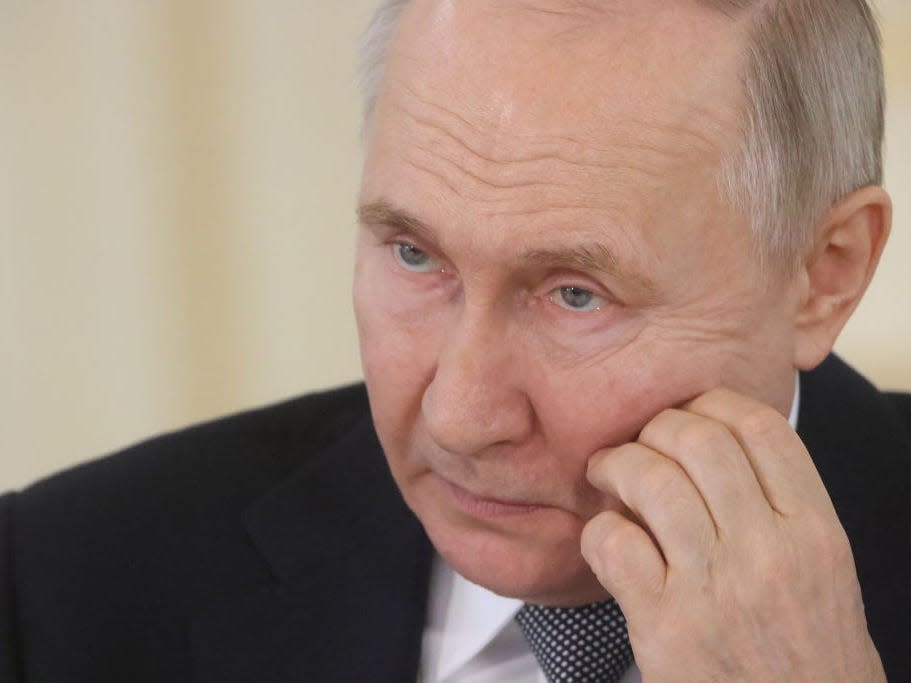Putin could struggle to end the war in Ukraine because it's making some poor Russians richer

Russia's war against Ukraine has improved conditions for some poor Russians.
War-related activities have driven economic resilience, with 3.6% GDP growth last year.
High interest rates and military focus pose risks to Russia's economic stability.
Russia's war against Ukraine has made some poor Russians better off, complicating any calculus over how to end it.
Russia's sanctions-hit economy has appeared resilient even more than two years into the war, posting 3.6% GDP growth last year.
Reports from Russia suggest the growth is primarily driven by wartime activities that generate demand for military goods and services, subsidies that steady the economy, and sharp policy-making.
"Russian economy is progressively becoming militarised," researchers at London's Centre for Economic Policy Research think tank wrote in May.
"Some sectors and some regions have been winners in Russia's new war-oriented economy," they said.
According to the CEPR researchers, production in war-related industries increased by 60% from the fall of 2022 to the spring of 2024. Manufacturing output from other sectors remained flat over the same period.
Some of Russia's poorest regions are benefiting from a redistribution of wealth.
"The war has offered many people upward social mobility that was not available in the preceding decades of Russia's reintegration into global economy," the CEPR researchers wrote, referencing the fall of the Soviet Union.
Higher pay than even the oil industry
Households in regions where military recruitment is up have recorded higher deposits since the war started, according to a separate Bank of Finland report published in January. The research showed bank deposits grew about 30% from August 2022 to August 2023 in poor regions where more men were joining the war — outpacing 20% growth in other regions.
An economist told Radio Free Europe on Tuesday that increased wealth could make it difficult for the Kremlin to scale back the war in Ukraine, as that would also mean a slowdown in military-related production.
Soldiers from poor regions who are now on the frontlines might struggle with a decline in income because there are few opportunities should they return home, Andrei Yakovlev of the Davis Center for Russian and Eurasian Studies at Harvard University told the media outlet.
Higher pay comes with risks.
The UK Ministry of Defence estimated in May that half a million Russian soldiers had likely been killed or wounded since Russia's full-scale invasion of Ukraine in February 2022.
This, alongside a brain drain, is contributing to a manpower crunch in Russia — prompting the military to pay more than the lucrative oil and gas industries.
The Russian army offers contract soldiers a nationwide sign-on bonus of 195,000 rubles, or about $2,200, while salaries start at 210,000 rubles a month. In comparison, Bloomberg calculated that workers in Russia's relatively high-paying oil and gas sector took home about 125,200 rubles in monthly nominal salary in the first two months of the year.
Russia's economic report shows the country is increasingly caught in a web of challenges because of the war and its impact on the economy.
While Russia's top central banker, Elvira Nabiullina, and her team have managed to steady the economy so far, there are cracks emerging.
Earlier this month, Herman Gref, the CEO of Sberbank — Russia's largest bank by asset value — said the country's economy was "definitely and strongly overheated." Nabiullina herself warned in December that the country's economy was at risk of overheating.
Last week, Igor Sechin, the CEO of the Russian oil giant Rosneft, complained that high interest rates — put in place to tamp inflation — were making financing hard for businesses.
Read the original article on Business Insider


